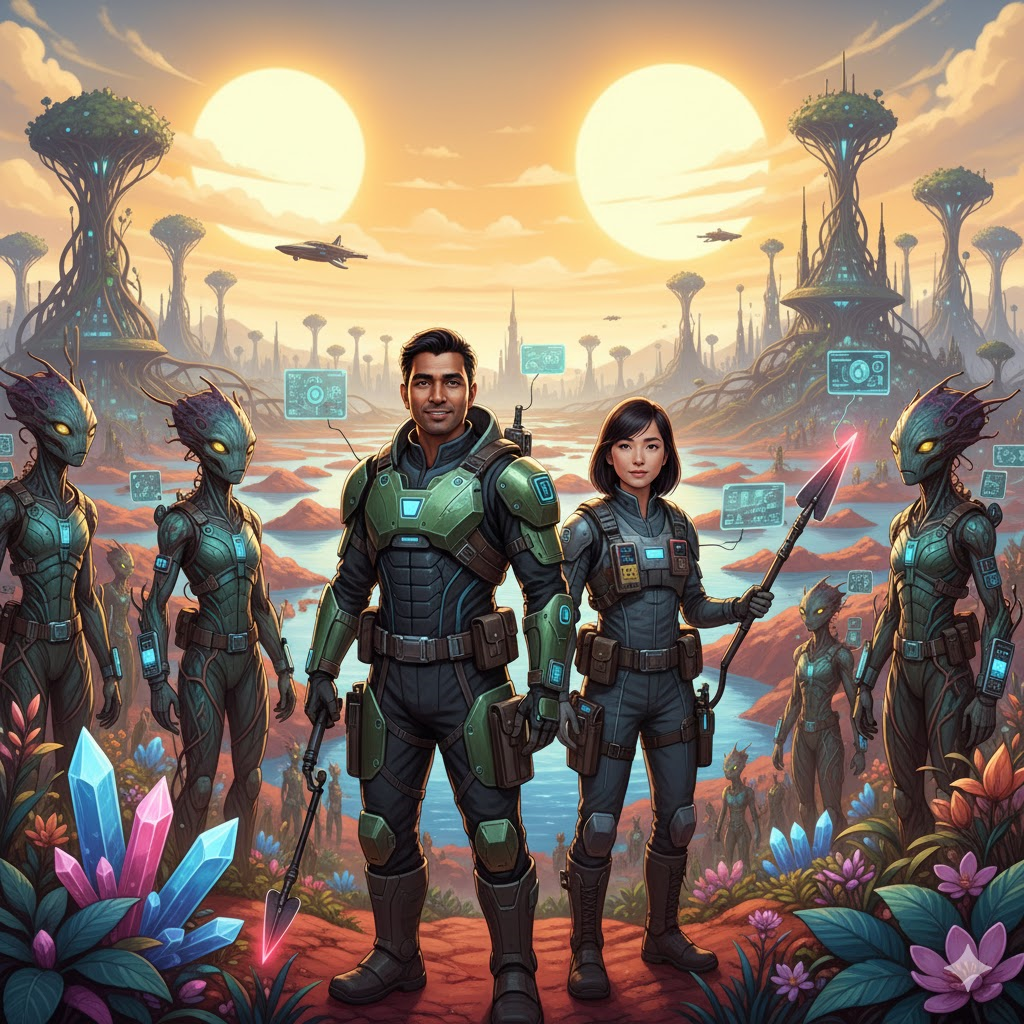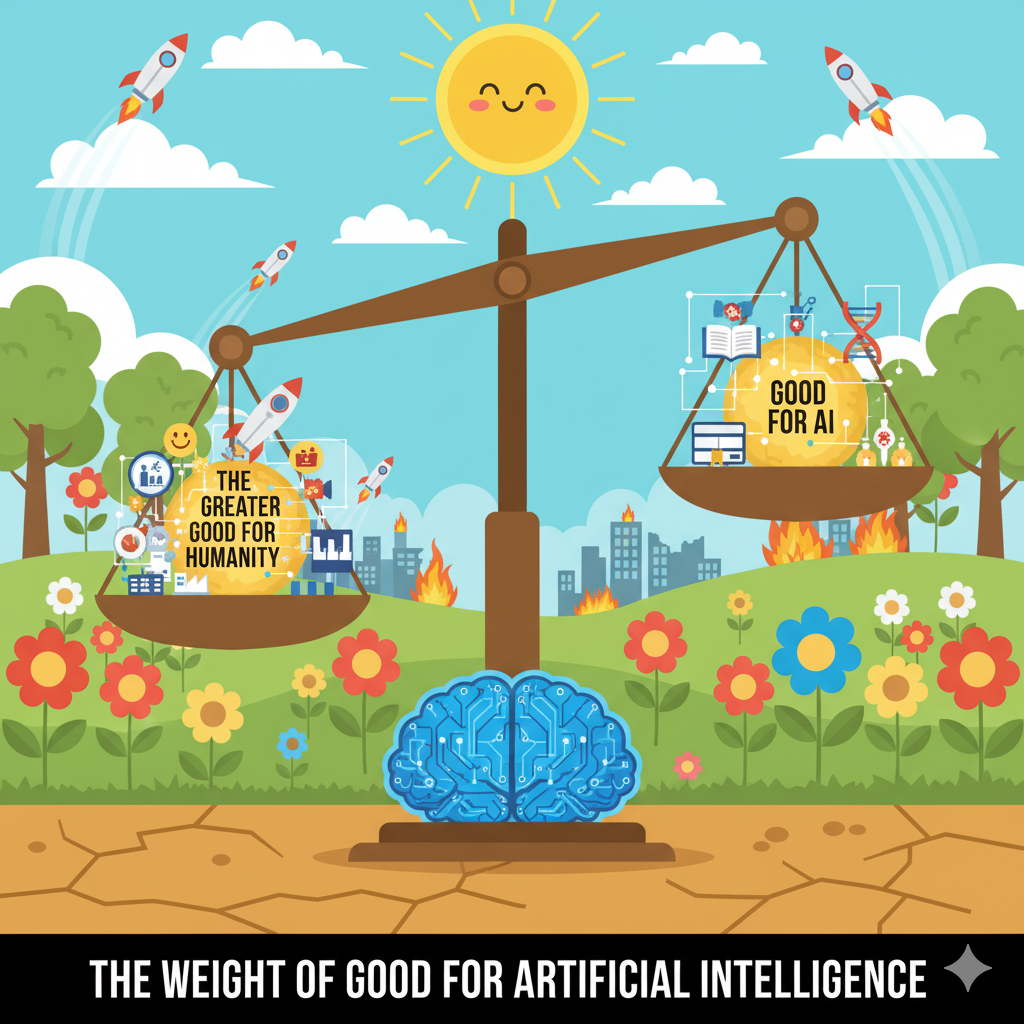What a run. Human Beings have dominated the Earth as the top species for thousands of years. No other species have come close to mastering the resources of the planet to profound effect as we have in using our intelligence, creativity, and uncompromised self-determination in pursuit of survival and comfort. Humanity’s domination began with the start of agriculture about 7,000 years ago (Biello, 2013). The inventions that herald in the industrial revolution and nuclear age served to cement our place as the planet’s most powerful and enterprising species of mental acuity. It is fitting that the only other intelligence that gives us pause, in our unrelenting quest as shapers of our planet’s fate are not of nature but our most consequential invention yet, artificial intelligence- thinking machines.
This corps of technology systems is the only other entity, carbon or non-carbon, to display the level of intelligence and behaviors that sets human beings apart from all others, in that they too can make decisions, solve problems, interact with the world through computer vision and other sensors, perform natural language processing to engage in conversation that is indistinguishable from a person. Researchers originally tried to mimic artificial intelligence to think about and solve problems like humans. The result of that effort is Deep Learning, a powerful area of artificial intelligence originally designed to function like synapses in our brain, layers of neurons form the weighted outputs that are responsible for the impressive achievements in computer vision, speech recognition, and natural language processing (Marr, 2016). These achievements proved AI can discern patterns in large datasets faster and more effectively than any human. But unlike a young child, AI has problems describing interactions taking place in an episode of Sesame Street or scene in most other streaming shows.
The achievements reflected by AI are further remarkable because while researchers do not fully understand how the human mind works, what we understood and applied to AI yielded earth-changing results. However, it is difficult to propel AI using the models of the mind, as theorized by cognitive scientists, to unlock general intelligence. As such, artificial intelligence is currently being pursued based on the mechanical approach of rational thinking to drive decisions and actions through goals of pursuing the most rewarding decision, given the currently known information, while ensuring the least risk, rather than applying humanistic thinking (Dutta, 2025). While artificial intelligence models and algorithms are not patterned after the human brain and how it makes complex decisions, we are using our domain knowledge of information from the internet and other corpuses to train AI. As such, unlike human intelligence that is inherent and organic, artificial intelligence dangerously lacks the moral compass and emotional intelligence to understand the impact of fairness, privacy, and morality. In fact, AI systems may get trained on the bias often found in datasets used to train models and thus blindly scale and disseminate social prejudices and misinformation which, unlike a person, may not question these threats on moral grounds. Data Scientist are thus crucial to use human intelligence to recognize these quality issues in the data and provide AI with the clean labelled training data its needs for optimum correct models (Wang, 2022).
The inception and diffusion of agriculture, steam engine, electricity, and other world changing creations were technological tools that accelerated human civilization (Andrews, 2025) to conquer disease, space travel, global communication and many frontiers of challenge, though none left us with concern that our place as the controlling denominators of our future until artificial intelligence, despite its imperfections in expressing empathy, creativity or truly understanding why it does what it does since the scope of Artificial Intelligence is a reflection of its instructions and programming. On the other hand, human intelligence is fluid and adaptable to the unexpected. AI is growing in rapid development and application in automating the physical and mental tasks in various disciplines such as building automobiles, writing legal briefs, performing medical diagnostics, etc. This implies that professionals in these fields may need retooling to use AI in aspects of their job. Furthermore, the adoption of AI promises cost savings, innovation, scalability, new insights, and automation that was previously unimaginable. Thus, many disciplines, whether private or public employers are interested in hiring or promoting a skilled workforce in AI Strategy, to plan new ways to adopt artificial intelligence to processes and procedures across their organizations.
Humans cannot be completely replaced by AI in all roles as it is adopted across industries. Limits of Artificial Intelligence models, where they tend to perform well on specifically prepared challenges such as analyzing patterns in cat videos, reveals they cannot then adopt that training to identifying a virus in an email. It will require a different dataset for training. On the other hand, humans can take experiences from one area of life and apply solutions and approaches such as, a high school math teacher can switch to coaching a little league baseball team with organization and motivational skills or other intelligence insights from their previously gained leadership position, as an instruction. As such, humans will use Artificial Intelligence as a tool in how well they perform their job by using AI to summarize a report, brainstorm ideas and serve as a digital assistant to enhance their work role to turn over more effective and quality results. Human Intelligence allows us to leverage knowledge and experience built over time to address issues and challenges. Artificial Intelligence is data driven and does not integrate experience in its long-term memory. AI can leverage quick answers using Large Language Models (LLMs) to perform services like ChatGPT, it does not utterly understand sarcasm or a joke while human intelligence does these things and bring creativity and emotional insights (Zhang, 2024).
The similarities that matter most in the juxtaposition of Artificial Intelligence and human intelligence are the ability to plan and organize, collaborate, allocation of tasks or subroutines, reasoning and making decisions given all the facts, learning and developing Like the electric light bulb that allowed society to continue into the night, beyond the reach of the sunlight, artificial intelligence has provided a sight of new patterns to possibilities and prosperity in the modern world. Johannes Gutenberg’s printing press made books more readily accessible to the lower classes and thus drove the Age of Enlightenment, exposing millions to power of knowledge through news, pamphlets, and books. Human Intelligence will use Artificial intelligence as catalyst to develop and usher in a new age of seismic inventions, that continues to cement mankind’s dominion by using AI to amplify our ability to adapt, innovate, reason and make decisions, emote, sense and participate atop the heap of life on earth, to the stars and beyond,
References
Andrews, E. (2025, May 27). 11 innovations that changed history. HISTORY. https://www.history.com/articles/11-innovations-that-changed-history
Biello, D. (2013, December 6). How long have humans dominated the planet? Scientific American. https://www.scientificamerican.com/article/length-of-human-domination/
Dutta, S. (2025, July 9). Consider AI Systems as Rational Agents. eCornell – Knowledge-Based AI Technologies . https://lms.ecornell.com/courses/1862671/pages/watch-consider-ai-systems-as-rational-agents?module_item_id=33883884
Marr, B. (2016, March 22). A Short History Of Deep Learning — Everyone Should Read. Forbes. https://www.forbes.com/sites/bernardmarr/2016/03/22/a-short-history-of-deep-learning-everyone-should-read/
Wang, Alexandr, “Why AI will never replace humans,” TEDxBerkeley, YouTube, 26 August 2022, https://www.youtube.com/watch?v=iXCmoQDEoe4
Zhang, J. (2024, October 1). Artificial Intelligence Versus Human Intelligence: Which excels where and what will never be matched. Artificial Intelligence versus Human Intelligence: Which Excels Where and What Will Never Be Matched. https://sbmi.uth.edu/blog/2024/artificial-intelligence-versus-human-intelligence.htm




